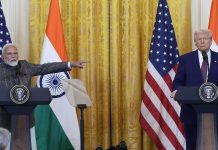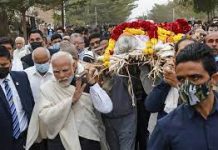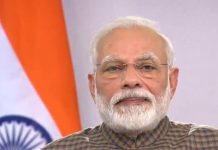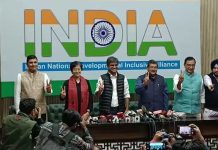
On the night of 4 March 2006, four friends, batchmates from college who hadn’t met for three years, sat talking on the banks of the Hooghly. The subject of marriage came up. They agreed that however much bachelorhood suited them, their parents had certain expectations of them. They agreed that they preferred to marry the girl of their choice, but noted that all of them were north Indians, working in faraway states, which meant the chance of them finding a (north Indian) soulmate was quite slim. In any case, their techie jobs didn’t give them the time to meet different people. The solution, they realised, was the panacea for all their longing: the Internet.
A few weeks later, Ravinder Singh found himself creating a profile on Shaadi.com. After sending requests for further interaction to (only Punjabi) women who struck his fancy, he waited for responses. Most of them ignored him and the few that responded “didn’t appear that good”. Eventually, he lost interest. Until Khushi, a techie and a Punjabi, one of the better-looking girls he had contacted, called him. They talked on the phone, eventually for hours on end. They fell in love. He met her family, her family met his. Then, days before they were to be engaged on Valentine’s Day, 2007, the cab taking her home from work was hit by a truck. After a few excruciating days in the hospital, she died.
Six years later, a small crowd at the Barista in a swanky Gurgaon mall waits for Ravinder Singh, now 31, to show up. Waiters pass out cups of Blast From The Past, a new coffee being launched along with Singh’s third novel, Like It Happened Yesterday. As we wait, a video starts playing: a ‘trailer’ for the book, a cartoon version of the author appealing to the audience’s nostalgia, asking them to remember their childhood. It’s a sizeable audience; hours earlier, Singh had been nervous about whether anyone would brave the rain, miss an India-Pakistan cricket match and head to a mall with little Metro connectivity for a book launch (the cricket match has thankfully been delayed by rain). A representative from Penguin India, the book’s publisher, tells me that two lakh copies have already been sold.

Ravinder Singh
Penguin (Metro Reads)
206 pp; Rs125
Singh is mobbed as he arrives. Curious onlookers ask what the fuss is all about. Ravinder who? The IPL guy? Standing in the back of the room, it’s impossible to see him in person; I have to be content with seeing him through the dozens of phones and tablets taking photos. Throughout the launch — he makes generic comments on how awesome school life was — his fans take videos. When he takes questions, he is asked, usually after an effusion of praise, mostly about the book that made him a household name (depending on your household) in 2008.
I Too Had A Love Story.. — the two elliptical dots were added at the behest of Jayanta Bose, owner of Srishti Publishers, who prefers his titles to have exactly 19 characters, excluding spaces — has sold, literally, millions of copies in the last five years. It still appears in bestseller lists, as does its ‘sequel’, Can Love Happen Twice? (also 19 characters, but purely coincidental; it was published by Penguin). It is the true story of his tragic courtship of Khushi, a book he felt he had to write in order to get closure. Working for Infosys in Chandigarh at the time, he had never written before.
After pouring his heart out, Singh wanted desperately to have his story reach as many people as possible. But he encountered what is now a familiar obstacle, a badge worn triumphantly by successful writers of commercial fiction in India: rejection letters. One by one, all the major and minor publishing houses he contacted refused to publish him. He even tried to persuade a printer in Daryaganj to print 500 copies, but the order was too small. He reached out to an online forum that helps budding authors polish their manuscripts, and tried again. This time, Srishti, a company that has been at the vanguard of the commercial fiction movement (“founded with the objective of giving a platform to budding Indian authors from various walks of life whose story is worthy of being told to the masses,” says publisher Arup Bose), bought it. It would go on to be their bestselling title.













